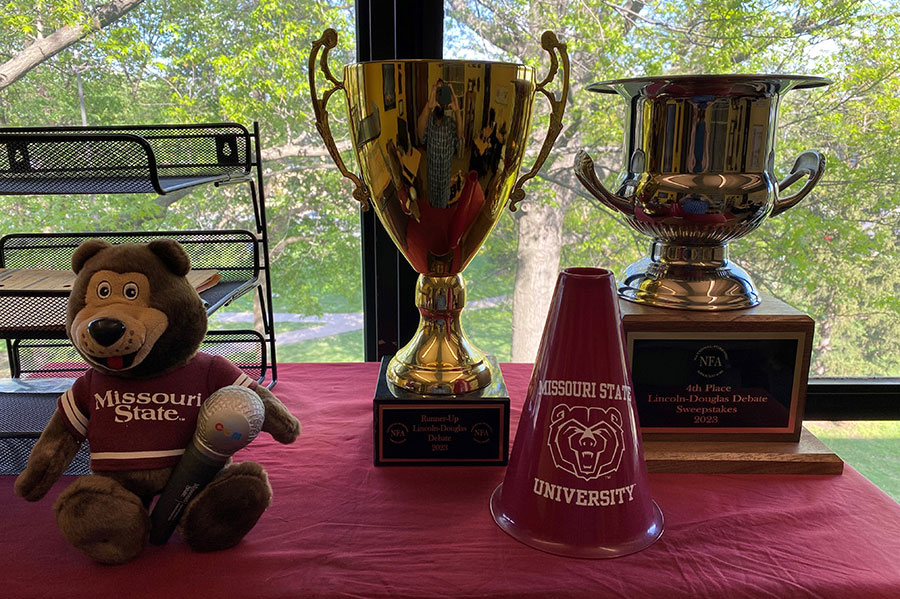Everybody loves an underdog but what about underbears?
Time and time again the Holt V. Spicer Debate Forum at Missouri State University has proven they’re not the team to be messed with. Whether it’s dominating at a regional tournament or sweeping the house at a championship. And what’s their secret?
Coach Eric Morris, the Director of Forensics and Professor of Communication, says it’s all thanks to the format they practice in—NDTCEDA.
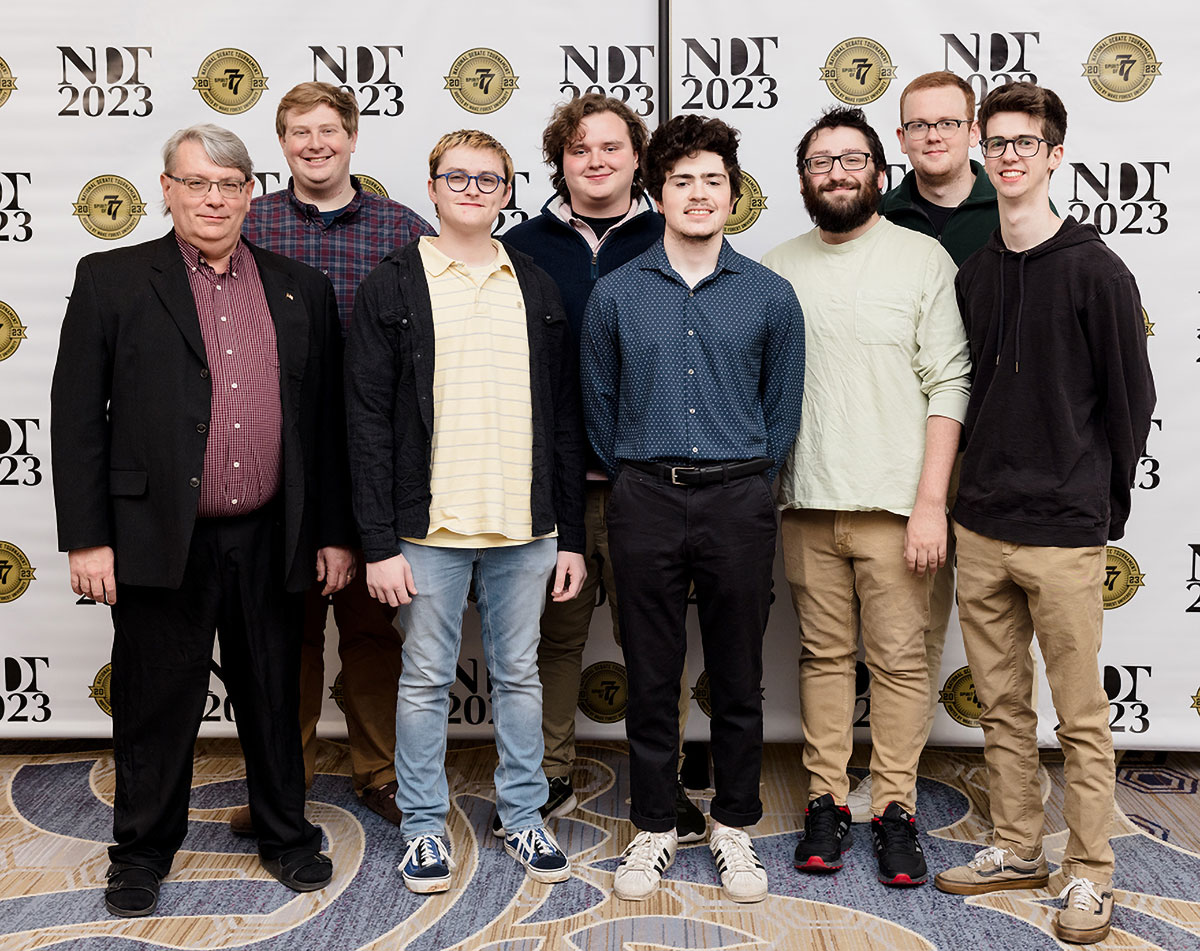
The Spicer Debate Forum actually competes in both the NDTCEDA and NFA-LD college debate formats.
NDTCEDA, which stands for National Debate Tournament Cross Examination Debate Association, has two pairs competing against one another. It requires debaters to do more in depth research on an assigned topic for one year. NDTCEDA debates are also more of a time commitment. A single round can last anywhere from two to three hours, including the debate itself. Teams are then given feedback by highly specialized judges. MSU attends five to seven NDTCEDA tournaments a semester.
On the other hand, National Forensic Association, Lincoln Douglas (NFA-LD) debates are shorter. A round usually lasts about an hour. It’s formatted as a one-on-one debate and is designed for a more general audience. MSU typically competes in only two NFA-LD tournaments per semester.
This year, however, Debate Bears competed in NFA Nationals at Bradley University in Peoria, Illinois, for a weekend in April and they weren’t going to let a less familiar debate format keep them from succeeding.
Three students attended the event: Sam Cade, Lauren Woodall, and Justin Albright, accompanied by Morris. When they arrived, they realized they were going up against teams triple their size. But those three proved to be as mighty as a ten-person team, beating out over 80 other entries by ranking fourth in the nation sweepstakes.
Sweepstakes is a category that looks at a team’s cumulative success across the group. They count the top five scores of every team. Given that the Debate Bears placed with only three entries, compared to other teams with five debaters, this is an impressive feat.
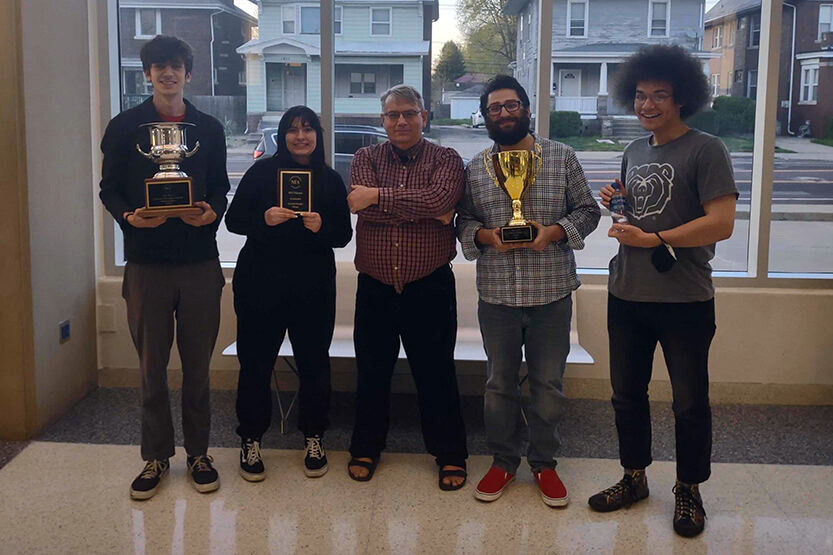
The tournament consisted of two stages. In the first stage, every debater was guaranteed to compete in six rounds. Afterwards, the winners advanced to stage two, the elimination rounds. Similar to NCAA brackets, if a student won the debate, they moved on; if they lost, they were eliminated.
Two of the MSU debaters made it to the second stage, Cade and Woodall. Based on participation, this year’s bracket had 32 entries, known as a double octafinal. As the competition progressed, both Cade and Woodall won their double octafinal rounds and went on to the octafinals or the “sweet sixteen.”
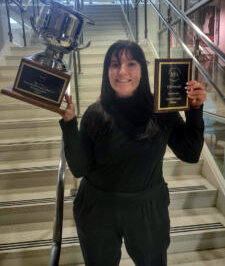
Woodall lost against a student from Western Kentucky University, so it was all up to Cade. As he moved ahead to quarters, then semifinals, and finals, Morris said Cade defeated some reputable names in the debate community.
“It was heartbreaking for some,” Morris boasted.
Cade met his match in the finals, losing to another senior from University of Nebraska. That meant he took second place at the championship and, because of all three debaters’ efforts, the Spicer Debate Forum ranked fourth place in all the nation.
“People don’t have us on their radar,” Morris said. Because of that, opponents didn’t target them when it came to developing a competition strategy. Despite not constantly competing with the “big dogs,” MSU proved that they can still play ball. Another advantage to being trained in NDTCEDA was the students’ stamina when it came to debating back-to-back during the championship.
As Morris mentioned, NDTCEDA rounds tend to run almost twice as long as an NFA-LD round. It’s not uncommon that a participant is doing a 14-hour day at an NDTCEDA tournament. So, Cade was more than ready to work his way up in the NFA brackets.
“NDT challenges them in different ways…the judges will be more thorough in making their decision and then talk to you for a long time.” —Dr. Eric Morris
The amount of direct, verbal, immediate feedback time the debaters get with the judges is another factor that gives them an edge. They accelerate quickly because they’re given thoughtful and timely notes on their arguments and can quickly turn around and apply them to their next debate. It also teaches the debaters to be thick-skinned.
And this isn’t the Debate Bears first rodeo. They’ve gotten to the final round in many tournaments. In 2014, 2018, 2019, and now 2023, they’ve made it to the final round before coming up just short.
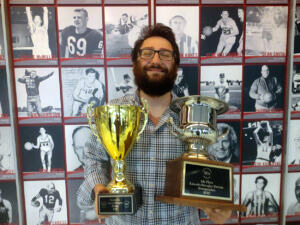
Many seniors are graduating this semester, including Cade and Woodall. Cade is headed to law school at University of Missouri, and Woodall is attending Wichita State University for graduate school.
As Morris looks ahead at the upcoming season, he’s focused on rebuilding and strengthening his team so they can keep achieving at a high level nationally.
The Spicer Debate Forum is comprised of communication majors and non-majors alike. Any student is welcome to join the Debate Bears or enroll in the Inter-Collegiate Debating course (COM 321). Not only does debate come in handy at tournaments, but students also learn about the research process, evidence-based arguments, and improving listening and critical thinking skills. Students are encouraged to reach out to Morris with any questions regarding the class or the Debate Bears.

